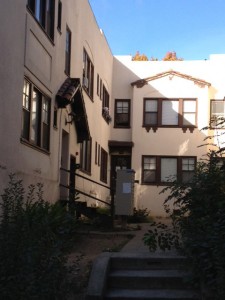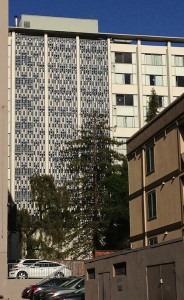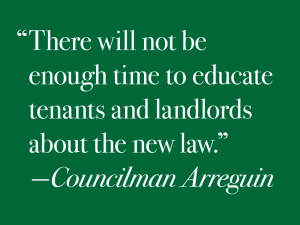Arreguin Tries to Protect Tenants from Evictions for Smoking
Berkeley City Council may finalize the law making it illegal to smoke in any multi-unit building in Berkeley on Tuesday December 3. Councilman Arreguin is making one more attempt to ensure the new law treats owners and renters equally. His suggestions also include more information to guide new renters, such as a registry of rental units and their smoking history, requiring owners to post signs, and that smokers receive warnings before they are fined.
Arreguin’s proposal – Council Item 28 – includes the radical suggestion that Berkeley actually allocate city staff to enforce the law!
You can see both smoking items on the Council agenda here (#28 and #30)
http://www.ci.berkeley.ca.us/Clerk/City_Council/2013/12Dec/City_Council__12-03-2013_-__Regular_Meeting_Agenda.aspx
Here is a summary of Arreguin’s item:
28. Referral to City Manager: Amendments to Tobacco-Free Multi-Unit Housing Ordinance (Continued from November 19, 2013)
From: Councilmember Arreguin
Recommendation: Refer to the City Manager for incorporation in a draft Tobacco-Free Multi-Unit Housing Ordinance the following proposals: 1. Delay the effective date of the ordinance to May 1, 2014, rather than March 1, 2014 as previously directed by the City Council, so that staff has adequate time to draft amendments based on this referral and bring back a final ordinance for Council adoption. Also delay the requirement that landlords notify tenants effective January 1, 2014. A delayed implementation date would also provide enough time for the city to conduct outreach to owners and tenants of the new requirements and increase smoking cessation resources before the ordinance goes into effect. 2. All initial leases or rental agreements signed on or after May 1, 2014 shall include language expressly prohibiting smoking in the units or in any common areas of a multi-unit residence. 3. That all initial leases or rental agreements signed after May 1, 2014, also notify tenants which units in the building do not have leases which expressly prohibit smoking. 4. Failure to provide either of the lease provisions noted above will allow the new tenant to break the lease without penalty. (the language proposed by the Manager on October 1st along with the modifications proposed by the Rent Board on October 1st suffices). 5. That the City or Rent Board actively encourage and try to get tenants to sign voluntary lease addendums which prohibit smoking. Any voluntary lease addendum should be on a City/Rent Board developed form. 6. That the Rent Board establish and maintain a registry of all rental units in multi-unit housing indicating which units have leases that expressly prohibit smoking & require owners to notify the Rent Stabilization Board of lease provisions prohibiting smoking, and that the city require that owners of units registered with the Rent Board and those that aren’t registered provide information on which units have no-smoking lease clauses. 7. That owners be required to post signs in common areas of all multi-unit housing indicating smoking is prohibited. 8. That the City allocate staff to enforce violations of this ordinance through an initial investigation, written warning and followed by progressively increasing fines of $250, $500, $1000 and $1,500 for each infraction. Consistent with the previous staff drafted ordinance, there should be a cap on the number of private right of actions that any individual resident may file in a year against another smoking resident. 9. Includes the private right of action but strengthen it by allowing each resident to collect no more than $1,000 in a calendar year through private right of action. Doing this allows us to show that we are not tolerating or condoning smoking but believe that real financial penalties (rather than an unequal risk of lost housing) should be an appropriate penalty that can be applied in a more uniform way. Also making a violation the ordinance an infraction does not give an owner automatic grounds to evict a tenant. Also include the mandatory mediation provisions included in the ordinance proposed by the Manager on October 1, 10. Warnings be required by landlords and by the City before any enforcement action can be taken. The City Council should authorize sufficient staff and a funding source for proper enforcement and outreach. Previously, the City Manager indicated such a program would cost in the neighborhood of $120,000 annually to implement. Councilmember Maio indicated that the inspectors associated with the Rental Housing Safety Program be charged with implementing the Ordinance. If the RHSP fee were increased by $5 per unit, there would be sufficient resources to fund the necessary staff to implement the provisions of the Tobacco-Free Multi-Family Housing Ordinance I am proposing. If there needs to be a specific nexus between a no smoking ordinance and the RHSP program, City staff should explore amending the housing code so that smoking is a violation that can be cited and enforced by RHSP Housing code inspectors.
Berkeley Patch:
http://berkeley.patch.com/groups/politics-and-elections/p/call-for-tougher-antismoking-law-in-berkeley-multiunit-housing
SF Gate Blog:
http://www.sfgate.com/opinion/saunders/article/Secondhand-smoke-gets-in-your-rights-4992161.php
San Francisco Chronicle:
http://www.sfgate.com/bayarea/article/Berkeley-s-next-smoking-ban-may-hit-home-4984302.php







